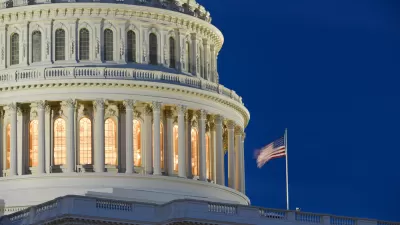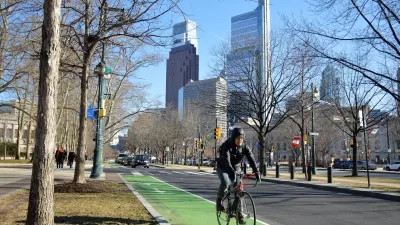A series of massive urban stimulus plans have been announced recently by several Chinese cities. Economists are split on whether the projects can speed up the country's growth rate and accommodate the influx of urban migrants, reports Chris Oliver.
With China's economic growth rate falling to its slowest pace since the 2008 global crisis, and more deceleration predicted, several local Chinese governments have announced stimulus packages in the hundreds of billions of dollars in recent weeks. The latest came out of the port city of Tianjin, who announced "plans to invest 1.5 trillion yuan ($236 billion) to offset its slowing
growth rates," writes Oliver. "The four-year plan is targeted at 10 industries ranging
from petrochemicals to ports."
"The announcement comes on the heels
of similar stimulus packages in the major metropolis of Chongqing and
the southeast province of Guangdong, which unveiled plans to spend 1.5
trillion yuan and 1 trillion yuan, respectively. Big stimulus
packages were also unveiled by other Chinese cities in recent weeks,
including Wuhan, Ningbo and Guizhou, according to state media."
While some economists see the plans, which effectively repeat the government's initial response to global economic recession, as the right medicine, other are not convinced.
"Standard & Poor's said Wednesday that massive public spending
might boost growth rates in the short term, but it's not clear such
stimulus would bring about longer-term benefits to the Chinese economy," writes Oliver.
"It
highlighted concerns over the efficiency of some projects, adding that
wasteful investment could even have a toxic effect down the road."
FULL STORY: Can China’s stimulus plans really help?

Planetizen Federal Action Tracker
A weekly monitor of how Trump’s orders and actions are impacting planners and planning in America.

Map: Where Senate Republicans Want to Sell Your Public Lands
For public land advocates, the Senate Republicans’ proposal to sell millions of acres of public land in the West is “the biggest fight of their careers.”

Restaurant Patios Were a Pandemic Win — Why Were They so Hard to Keep?
Social distancing requirements and changes in travel patterns prompted cities to pilot new uses for street and sidewalk space. Then it got complicated.

Platform Pilsner: Vancouver Transit Agency Releases... a Beer?
TransLink will receive a portion of every sale of the four-pack.

Toronto Weighs Cheaper Transit, Parking Hikes for Major Events
Special event rates would take effect during large festivals, sports games and concerts to ‘discourage driving, manage congestion and free up space for transit.”

Berlin to Consider Car-Free Zone Larger Than Manhattan
The area bound by the 22-mile Ringbahn would still allow 12 uses of a private automobile per year per person, and several other exemptions.
Urban Design for Planners 1: Software Tools
This six-course series explores essential urban design concepts using open source software and equips planners with the tools they need to participate fully in the urban design process.
Planning for Universal Design
Learn the tools for implementing Universal Design in planning regulations.
Heyer Gruel & Associates PA
JM Goldson LLC
Custer County Colorado
City of Camden Redevelopment Agency
City of Astoria
Transportation Research & Education Center (TREC) at Portland State University
Camden Redevelopment Agency
City of Claremont
Municipality of Princeton (NJ)





























